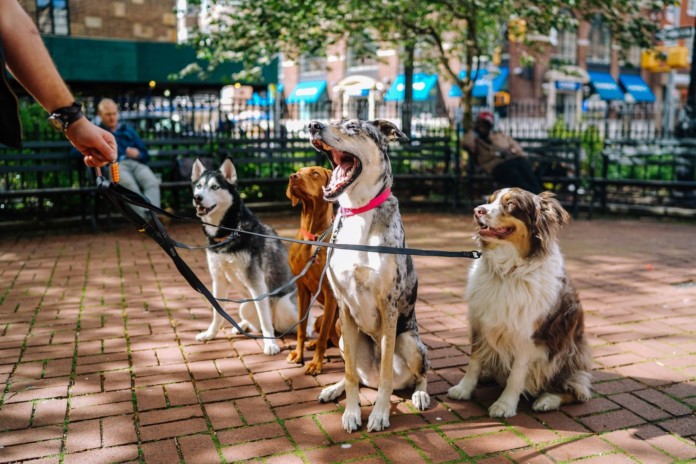How to Properly Train Your Pet to be Potty Trained
Potty training your dog or cat is one of the more difficult aspects of being a pet parent. You’ll experience ups and downs, and plenty of accidents along the way, so buckle up!
To make your training efforts a bit easier, we’ve compiled a list of tips from some of the most knowledgeable leaders in the pet care and training space. Here’s what you should know before getting started.
Figure Out the Fundamentals
Even if you have minimal experience training pets, you’ll have an intuitive idea of what works for training a dog or cat to use the bathroom properly.
“To some degree, the potty training process is not unlike the ones we use for children when they reach a certain age,” said Tim Mitchum, President of WINPRO. “Use the same spot, repeat the same key words, and be consistent for weeks or months before it clicks.”
It’s true – the best trainers in the world can’t make a dog learn any faster than they are willing or able to learn. Time is the main factor when it comes to house training or any other aspect of dog ownership.
“Don’t treat this like a race against the clock, because that will inevitably lead to frustration and end up hampering your training progress,” said Derin Oyekan, Co-Founder of Reel Paper. “Take as much time as you need, even if it’s longer than you were told to expect.”
If you’re ever unsure about the basics of pet potty training, just remind yourself of the same mantras taught in every dog book and training program.
“There are no shortcuts here, just consistency and repetition,” said Adam Reed, CEO of Crown and Paw. “Create a vocabulary that you can use over and over, so that you make the message very clear, and don’t waver in your assertiveness. The process will test your patience but it’s worth it down the road.”
Offer Plenty of Encouragement
Your pet is just learning the ropes of life and getting comfortable with his or her surroundings. Positive reinforcement is the key to ensuring they are well adjusted as they potty train and grow.
“Use your voice, your expressions, your hand motions, and everything in your toolbox to incentivize your dog properly during the housebreaking process,” said Michael Waxman, Co-Founder and CEO of Sundays for Dogs. “They are highly intuitive and they know when you’re happy or upset about their behavior, so use this to your advantage.”
Young pets – puppies in particular – have tons of energy, but not as much mental stamina as you might expect. Avoid overtraining in these early months and allow them to relax as well.
“Mental exercise tires a dog physically more than physical exercise does,” says Dr. Ian Dunbar, Founder of Dunbar Academy. “Give them breaks and praise for when they do something right.”
Stay on Schedule
When in doubt, refer back to your schedule and let time do the work. As they say, 90% of the work is showing up and following through each day.
“Walk the dog about 15-30 minutes after every meal. Always praise the dog for going outside. Never ever use hitting or yelling if the dog has an accident in the house. Now, as far as behavior training, you will need to follow a schedule to make sure neither you nor the pup gets too tired or frustrated.” – Author and Trainer Cynthia Lynden
Keep them Motivated
For a young dog, the right incentives are everything. Give them as much guidance as possible, motivate them appropriately, and be careful with any form of negative reinforcement.
“There are techniques and even more techniques for potty training. Most involve taking your furry friend out every two hours, and to the same spot each time. But, let’s not forget rewarding your pet for actually going to the bathroom as you’ve indicated. This can be a healthy treat or a quick run around the block – whatever provides that motivation that they need to keep up the good habits! Never punish your pet for getting it wrong; it will have the opposite effect. Keep incentivizing and rewarding them when they do well.”– Marc Atiyeh, CEO of Pawp
Focus on the Next Goal
Successfully potty training your pet is certainly a victory worth celebrating, but as soon as that mission is accomplished, be sure to continue your training in other areas to stay focused on the road ahead.
“Avoid getting too comfortable once you’ve reached your house training goal, because pets need continuous training and reminders to stay well behaved in these early years,” said Lauren Kleinman, Co-Founder of The Quality Edit. “Have your next objectives planned out and jump right into it, because momentum is everything when it comes to training.”
When training pets, the work is never over!
Still, you deserve a pat on the back for potty training your dog or cat, and will enjoy the rest of the journey with more peace of mind.




